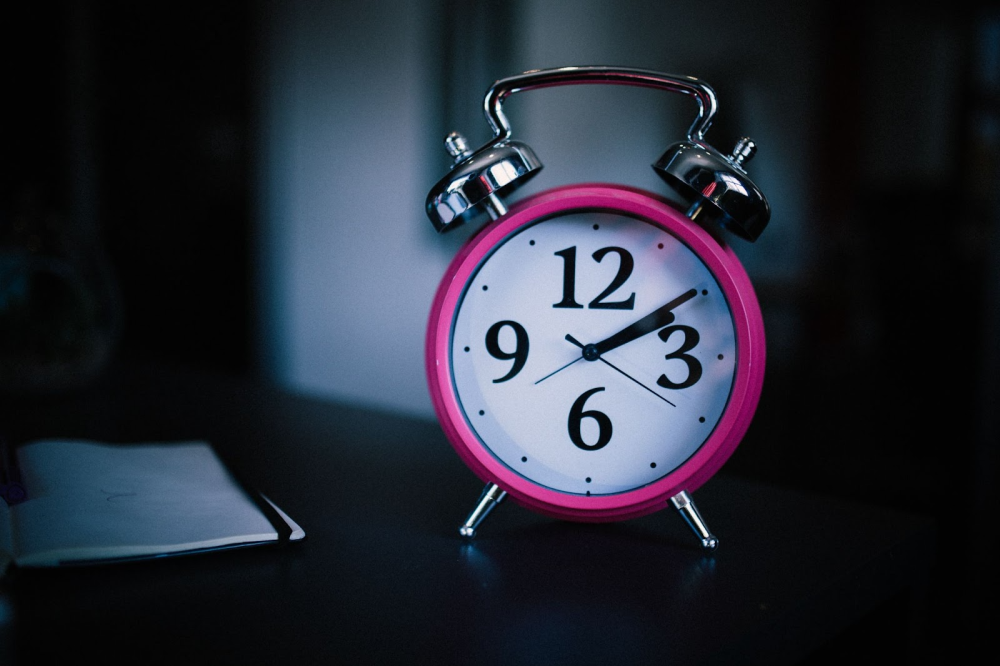Eight Reasons You’re Not Getting Enough Sleep At Night
Everyone needs a good night’s sleep every night and if you’re not clocking in enough hours, it’s going to take a toll on your body both physically and mentally. There are often a number of reasons why you’re not getting enough sleep at night and if you’re struggling currently, then it might be worth making a few changes.
Sometimes it’s a small habit that needs changing and other times, it might be an underlying health condition that is impacting your sleep. With that being said, there are a number of reasons that you should be looking at when it comes to your lack of sleep in the night. Here are eight reasons why you’re not getting enough sleep at night and how to correct it.

- You’re not going to bed at the same time every night
Your body benefits from routine and if there’s no routine during your bedtime, then that’s likely to be the reason why you’re not getting enough sleep at night.
If your sleep schedule is 9pm in bed one night and 11pm in bed another, then your body is never going to learn when it should feel tired and when you’re ready for sleep.
In order to fix this problem, you need to be going to bed at the same time every night. Of course, that’s not always something that’s possible to do and you may find yourself struggling to maintain that every night. However, if for the most part, you’re sticking to the same time most nights, your body will learn that this is the time at which you’re going to sleep.
It means that for the hour or so before your head hits the pillow, your body will naturally relax and get itself ready for bed.
- Too much distraction in your bedroom
Distractions are something that those with sleep problems will know all too well. Whether that’s noises from the outside or light shining into your bedroom from the lamppost outside. There’s nothing worse than getting a distraction when you’re trying to sleep.
If you’re a heavy sleeper, then this might not be something that really impacts your sleep that often, other than trying to get off to sleep in the first place. However, if you’re a light sleeper, then too many distractions that wake you up in the night, will cause broken sleep.
Broken sleep isn’t fun, so it’s important to limit these distractions where you can. A few simple solutions to this is by wearing an eye mask to avoid light waking you up. You may also find it useful to wear earplugs if there is often a lot of noise in your local area at night, or likewise, within your own home.
- Using your mobile phone before bed
A mobile phone is not only distracting when you’re trying to fall asleep but using it before bedtime is going to impact your quality of sleep.
Apart from the pinging of your phone as you try to head off into the land of nod, any exposure to blue light an hour or so before bedtime is going to keep you awake. Blue light loves to keep your brain wired and so if you’re using your phone just before your head hits the pillow, then it’s going to impact how quickly you get to sleep.

Struggling to get to sleep is something that many people have a problem with and when you can’t sleep, it’s eating into the hours of sleep you will get before it’s time to get up again. With that being said, try to avoid using your phone and instead, put it far away from your bed so that you’re not tempted to pick it up at any point before going to sleep.
- You have a medical problem related to ENT
Medical problems can sometimes cause problems with sleep and if you’re not getting a good night’s sleep, then it’s worth exploring this option with a health professional.
A lot of sleep problems are related to issues with ENT – ears, nose, and throat. From ear pain and pressure to sinus problems and runny noses, these all impact your quality of sleep.
That impacted sleep only makes your ENT conditions worse and so it’s an endless cycle that desperately needs fixing. Speaking to Becker ENT & Allergy specialists might be just what’s needed to help resolve the issues you’re having when it comes to your sleep quality.
Medical problems are more encroaching on your day-to-day habits than you think, so if you’re having trouble sleeping don’t rule this out as a potential cause.
- The bed you’re sleeping on needs changing
Everyone should be sleeping on a comfortable bed. A comfortable bed is different for everyone though, so it’s important to identify what type of bed is most suitable for your needs. For example, you may enjoy a memory foam mattress or you could be the opposite and want something more firm.
The type of mattress and bed you have could be sabotaging your sleep quality and how much sleep you’re getting every night. Remember, the average mattress has a shelf life of around eight years before it starts to become less effective.
Is your mattress over eight years old? Perhaps it’s double that? If that’s the case, then it’s definitely important to change the bed that you’re sleeping on. It’s a simple but costly change, but a cost that is worth the investment in your sleep.
As it’s something you’re using daily, it’s better to spend more money on it and for it to last a lot longer as a result. Shop around for beds and mattresses, making sure to test them out before you buy.
- Your mental well-being isn’t doing great
How is your mental well-being doing? Sometimes, the health of your mental state is often a contributor to a bad night’s sleep. If you’re overthinking things or you suffer from anxiety or depression, then this could be keeping you awake at night.

It might not even be a conscious thought that you’re having, yet it’s playing in the back of your mind and in overdrive when you’re trying to fall into a deep sleep.
With that being said, there are many ways in which you can combat this. Firstly, talking about it to friends, family or professionals is useful. Other tips include journaling before you go to bed and finding outlets that help with your mental well-being. Everyone is different so what works for one person, might not work for someone else.
- Shift work might be taking a toll
For those that work shifts, the toll that it takes on your body is one that seeps into your quality of sleep. If you’re doing shifts that aren’t consistent and might alternate between day and night, that’s likely having even more of an impact.
Of course, this isn’t an easy fix, especially as many rely on their income to keep the household running as it should. However, if it’s impacting your health and there are other options out there, it’s important to review those options for the benefit of your sleep quality.
- You’re drinking caffeine or alcohol in the evening
Lastly, if you’re drinking caffeine late into the afternoon or you’re consuming a lot of alcohol in the evening, then this could be preventing you from falling asleep easily. Where possible, it’s worth cutting back on caffeine or alcohol, especially in the evening.
These tips will enable you to get a better night’s sleep than you’re currently getting. Be sure to follow these fixes to get a quality night’s rest every night.
- Navigating Pregnancy as a Teen: Tips for a Healthy and Happy Journey - July 23, 2025
- What Does It Take to Start the Best Possible Relationship With Your New Dog? - July 23, 2025
- You Deserve To Take Care Of Yourself And Your Needs - July 20, 2025


